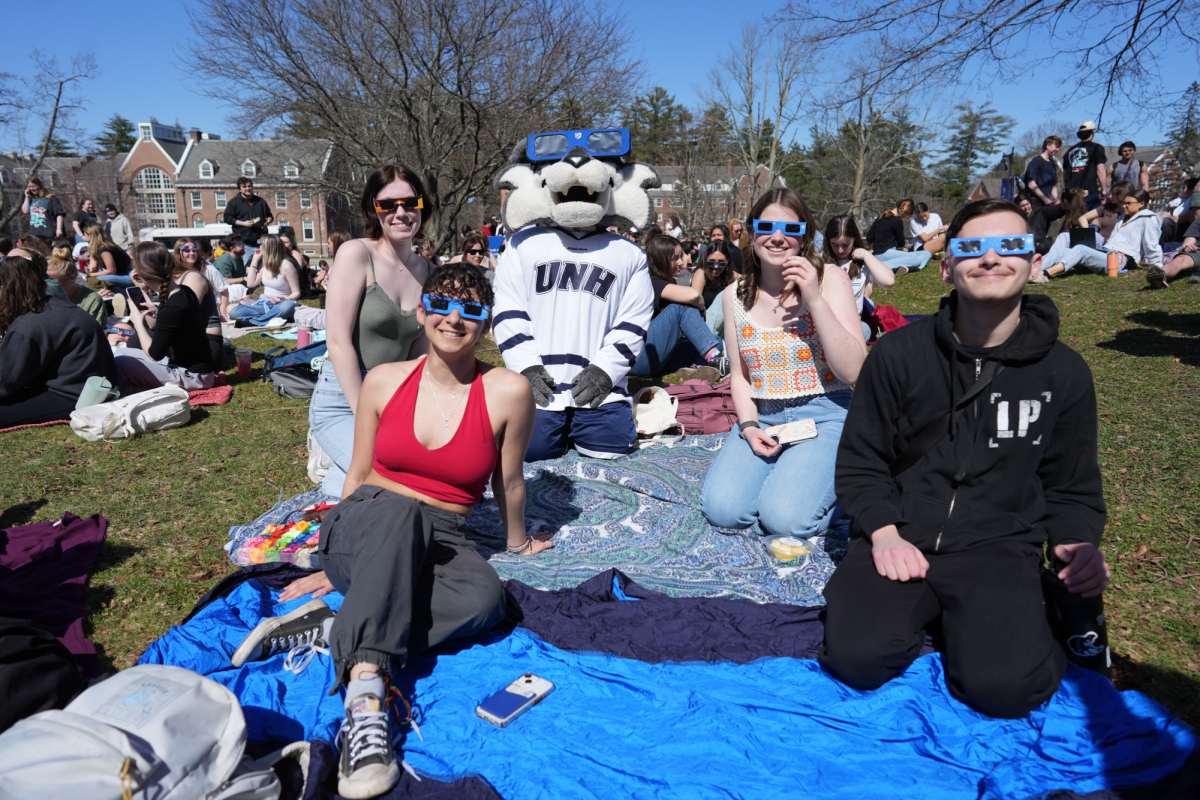By Ken Johnson, Staff Writer

NYU professor of classics, David Konstan, gave a presentation on Homer. The symposium created a platform for classicists to gather and share ideas.
How could Homer and World War II ever enter the same symposium?
Only thanks to the new academic department on campus and a love for all things classical.
The symposium, “Rouman Symposium: Myth Criticism in the Ancient World,” named after John C. Rouman, professor emeritus of Classics, took place Friday, Saturday and Sunday at the Piscataqua Room at Holloway Commons at the University of New Hampshire and the Hilton Garden Inn in Portsmouth. The symposium, which ran for a total of 12 hours, allowed classicists to present papers highlighting new research.
Each paper was followed by a question, answer and discussion period.
Scholars from around the world discussed myth at UNH. Topics such as whether Homer was blasphemous to the gods in “The Iliad” to what Hyginus chose to include, or not include, in his “Fabulae” were presented during the three-day symposium.
“I think in general you have such a wide variety of topics that get discussed at these conferences, we had someone who focused specifically on Homer in one session, and then we had someone look at the inter-war period and how people between World War I and World War II looked at the ancient Greeks and Romans and their myths,” junior classics major Mike Mignanelli said.
Mignanelli added, “So there’s such a wide range, it really gets everyone’s minds going, and I think that scholars who get to come and present information are contributing to a larger community that’s focused on developing more scholarship and raising interest and awareness specifically in this conference for myth criticism and mythography.”
Professors at UNH could agree: The symposium showcased intellectual roots at the university.

R. Scott Smith, UNH professor of classics, spoke at the symposium this past weekend. Smith’s department, classics, Humanities and Italian Studies, planned and presented this event.
“I would say that on a local level [the symposium] really shows the vitality of what the university does, so universities are meant to bring intellectual curiosity to bring dialog to discuss the importance of what we do, so on a local level it does exactly what the university really should be doing in addition to teaching students,” professor of classics at UNH R. Scott Smith said.
Stephen Trzaskoma, professor of Classics at UNH and chair of the Department of Classics, Humanities, and Italian Studies said, “The topic was chosen because, quite by accident, UNH has become a real center for research and teaching and thinking about the ways in which the ancients conceived of their own myth, criticized their own myth, thought about their own myth.
“There are a lot of venues for scholarly discussion symposia conferences and what makes this sort of gathering special is that it’s really focused, and it can be great to be an environment in which people are talking about all sorts of things, and you can learn all sorts of things but at the same time when you get people who know each other’s work, they know the same set of texts, they can have conversations that you can’t have in other environments,” Trzaskoma said.
The symposium brought an ability for classicists to share ideas at the university, within the university itself, as well as with classicists from other universities within the U.S. and one from Kiel, Germany, who is currently a visiting scholar at Emory University in Atlanta, Georgia.
“I think that the most important thing that symposia like this bring are really just the deep sense of connection; scholarship is a … tremendously internationalized activity, and the days of people simply doing work alone in a library are long gone,” Trzaskoma said. “Real research depends on collaboration, communication and conversation.”
More than just connection, the symposium also brought opportunity.
“I would say that this Rouman symposium on myth criticism really brings an opportunity, especially to students here at the university, to hear scholars on all sorts of subjects within classics come together and share ideas,” Mignanelli said. “It’s a great opportunity for students, it’s a great opportunity for the professors to kind of expand on their own ideas and discuss with other scholars, and I think that it engages the whole community in a sense that it makes UNH almost look like a flagship for this kind of idea, this kind of academic symposium.”
David Konstan, professor of Classics at New York University, who gave the presentation on Homer said as a presenter that the symposium provided him with “simulating new ideas, seeing what people are working on now, not four years ago when it comes out in the journals, [and] receiving frank criticism too.”
The symposium was put together by Smith and Trzaskoma and was presented by the Department of Classics, Humanities, and Italian Studies.
“There are certain subjects that aren’t naturally united in a specific way so one of the challenges we have with myth criticism is bringing together all the kinds of people who do this sort of thing,” Smith said. “So what we have is someone who works on Homer can also talk with someone who works on Vergilian scholia, these kind of weird commentaries that creep up to explain the text, so it’s really about a community building and about making sure that people who have similar interests can talk to each other and to actually promote new ideas that could not otherwise be expressed.”
While the symposium could bring connection and unity, one professor thought it went beyond that; that the most productive thing was acting on the information.
“I think the most productive thing is sharing ideas, hearing what people are doing and getting some responses and feedback to what I am doing in an environment where the group of people who are here all have similar interests,” said Dan Berman, associate professor of classics and chair of the Department of Greek and Roman Classics at Temple University in Philadelphia, Pennsylvania, who gave a presentation on local mythography; specifically looking the mythography of probable Theban Armenidas.
The department of Classics, Humanities and Italian Studies at UNH formed in July of this year, when the department split out of the department of Languages, Literatures and Cultures.
Trzaskoma said that, with the new department, there would be more events like this.
“And more events that intersect between the different components of the department.
So for instance, Italian studies, and classics and humanities have a great deal of overlapping sets of interest, and future events will be trying to build on those overlapping strengths,” Trzaskoma said.
“I think that the fact the faculty here has put this together, it just signifies that UNH ranks highly in undergraduate programs in classics,” Mignanelli said.



















